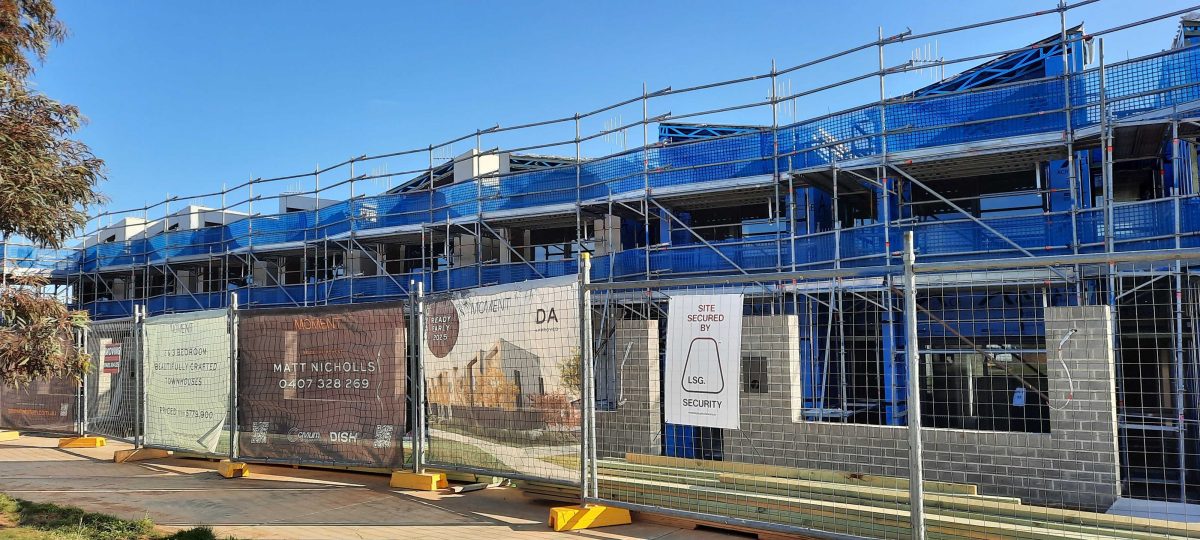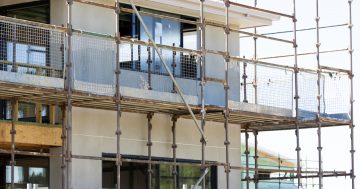
Imagine Building Concepts was building these townhouses in Whitlam when it ceased trading last week. Photo: Ian Bushnell.
The failure of another building company in the ACT is yet another sign that the industry continues to skate on thin ice.
Imagine Building Concepts went into voluntary administration last week owing at least $4 million to more than 100 creditors, and 10 employees are now out of work.
Supply chain issues, labour shortages and rising costs have plagued builders since the pandemic, and while the rate of construction cost increases has slowed, they are still rising.
Master Builders ACT says that over the year to June 2024, the cost of building and construction output in the ACT increased by 2.3 per cent, but house-building costs increased by 7.6 per cent over the same period.
Compared with before the pandemic, house building costs have risen by 48 per cent in the ACT, and overall, building and construction output costs are up by 15.4 per cent over the same period.
It’s easy to see how builders already operating on slim margins can be caught short in this environment, and some have had to be brutally honest with clients about the need to adjust prices and contracts.
The fallout is widespread, leaving buyers, workers and subcontractors in limbo and facing losses that can’t be recouped when a company is wound up.
Many builders are undercapitalised, surfing from one project to the next on a wave of debt and prone to wipeouts.
Too often, companies go belly up and disappear while the directors re-emerge with other entities to go through the same cycle.
Subcontractors complain that builders use money owed to them as operating capital but are hung out to dry when things go wrong.
They and industry organisations such as Master Plumbers ACT are pushing for a trust account system to safeguard payments to subcontractors, who would be paid at various stages of construction.
But builders are resisting such a reform.
Master Builders ACT argues that it would be much better to ensure that the problems do not arise in the first place.
This is a tacit admission that builders, as they operate now, would struggle without access to what is other people’s money.
It’s a tough business environment at the best of times but the cost explosions of the past few years have exposed the fault lines in the industry.
Reining in costs and construction times will help – and that may require innovations such as modular homes and prefabrication- but the industry needs to operate on a sounder financial and legal footing than what exists now.
Regulation and enforcement from the likes of the corporate watchdog ASIC have been ineffective, and lending practices have only fed risk.
The industry will also point the finger, rightly, at planning, approval and licence delays.
However, overall, the industry is ripe for reform because too many people are being hurt.
The subbies trust fund proposal makes sense and should be established. It is not a sound business model to wing it on money that should be set aside to pay for others’ work.
Company directors should not be able to flit from entity to entity and leave a trail of destruction behind them and a stain on the industry that reputable builders have to bear.
The industry may stabilise as costs level off, but unless there is change, the same issues will inevitably emerge to repeat the same predictable cycle.




















